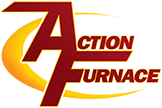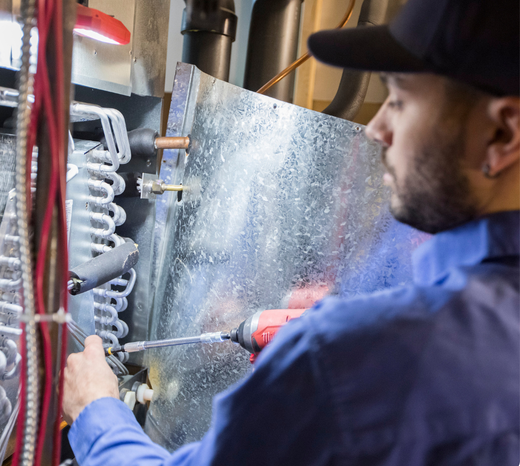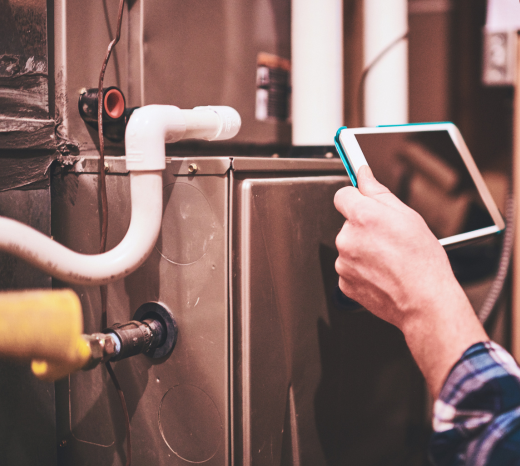Alberta winters are notoriously cruel. While that might be an exaggeration, our winters are still no joke. We need heat!
The earliest furnace...
Alberta winters are notoriously cruel. While that might be an exaggeration, our winters are still no joke. We need heat!
The earliest furnaces used wood and coal to heat homes and buildings. As time passed, fossil fuels made it more affordable and efficient to meet increasing heating needs. Better technology led to more heating options, including electric and gas furnaces.
So which is the best option for your home today? Alberta is a whirlwind of different seasons, often intermingling with each other. And you need to prepare with the best furnace system available, and Action Furnace is here to help you make the right choice.
What’s The Difference?
Gas furnaces heat your home using natural gas. The furnace is connected to a thermostat which signals the unit to turn on and off. When engaged, burning gas warms the air, and a heat exchanger powers the blower, distributing heat throughout your home.
Electric furnaces operate like their gas-powered counterparts but rely on electrically heated resistance coils or tubing instead of burners to create heat.
See also: How to Determine the Right Type & Size Furnace For Your Home
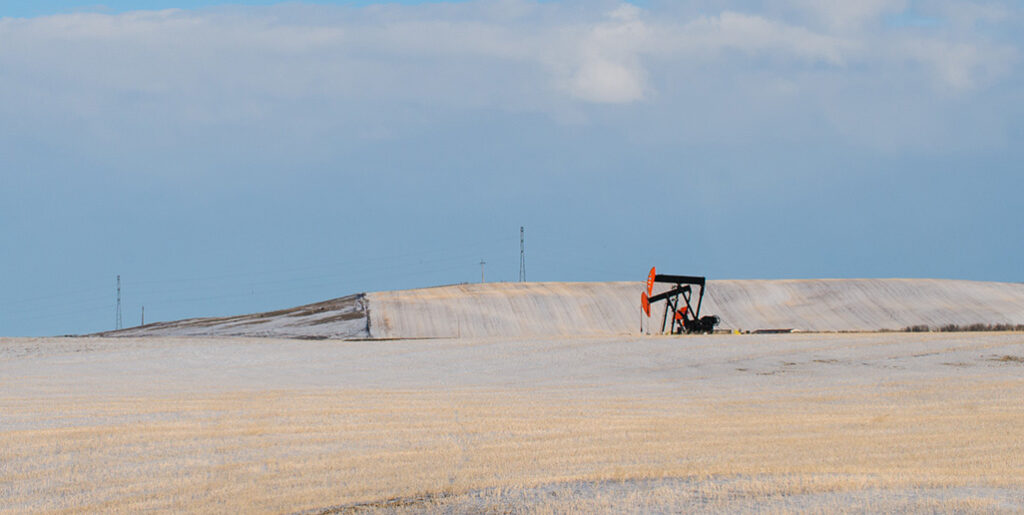
Heating Costs in Alberta
Over the past few years, the price of natural gas and electricity has unfortunately skyrocketed, leading Albertan families to look for ways to save money on their heating bills.
To mitigate price increases, many utility companies are allowing their customers to switch to fixed-rate plans or offer payment plans to help to cushion the blow.
Many energy experts currently point to natural gas as the most cost-effective way to heat your home. Still, it's important to know that region and location are significant factors.
In Canada, the price of energy is highly influenced by what resources are available in which region. For example, electricity tends to be cheaper in hydro-rich provinces such as Quebec and BC. While natural gas tends to be more affordable in natural gas-rich provinces like Alberta.
Typically in Alberta, natural gas has a lower heating cost than electricity.
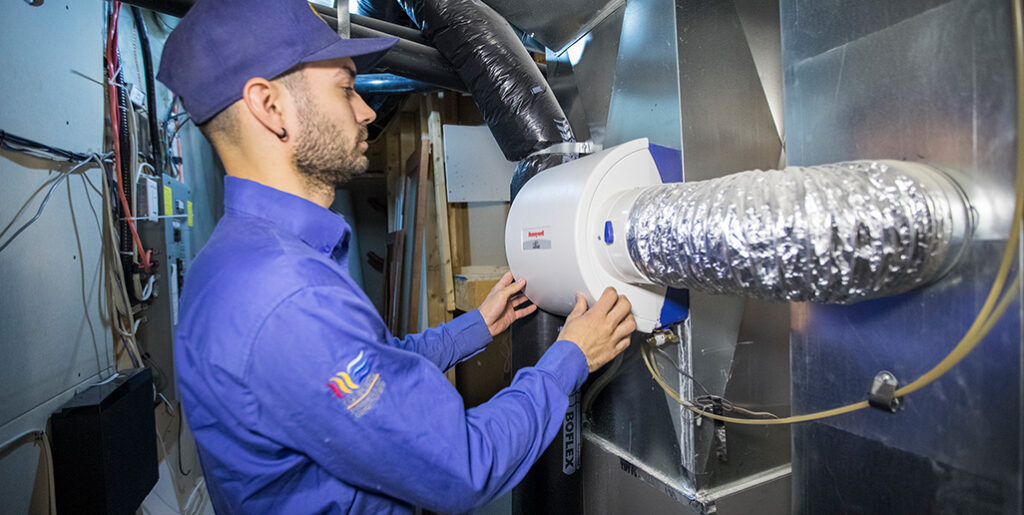
Cost & Installation
The cost of the unit itself is the first thing to consider when purchasing a new furnace. New furnaces cost upwards of a couple thousand dollars, including installation, so it’s best to know your options before getting started.
Gas furnaces are more expensive and require professional installation. Connections must be sealed properly to prevent harmful and combustible gases from leaking. Typically, gas furnaces run up a bill between $3,000 and $7,000, depending on the size and features.
Electric furnaces do not have the same risks regarding installations or connections and are usually cheaper to install. It is still recommended to get a professional installation because of the wiring required, other safety risks, and potential warranty conditions.
The $2,000 to $4,000 price tag for an electric furnace can make this an economical choice for smaller homes or first-time homeowners.
Heating & Efficiency
Both electrical and gas-powered furnaces have made great strides since the early days of home heating. But the lower equipment costs for electric furnaces are offset by performance limitations in cold climates.
The main reason Albertans choose gas-powered furnaces is that they heat faster than electric furnaces. The catch is that gas-powered furnaces are less efficient than electric ones, although the gap is tightening. Modern high-efficiency furnaces can reach an AFUE (annual fuel utilization efficiency) of 98.5%.
Most modern electric furnaces operate at almost 100% AFUE. However, the main drawback is that they take more time to heat your home, making them less optimal for snap colds that plague Alberta during the winter.
Another heating equipment type to consider is heat pumps. Heat pumps are another electric heating source; they operate the same way an air conditioner does, but in reverse. These are not ideal in sub-zero climates due to limited heating power.
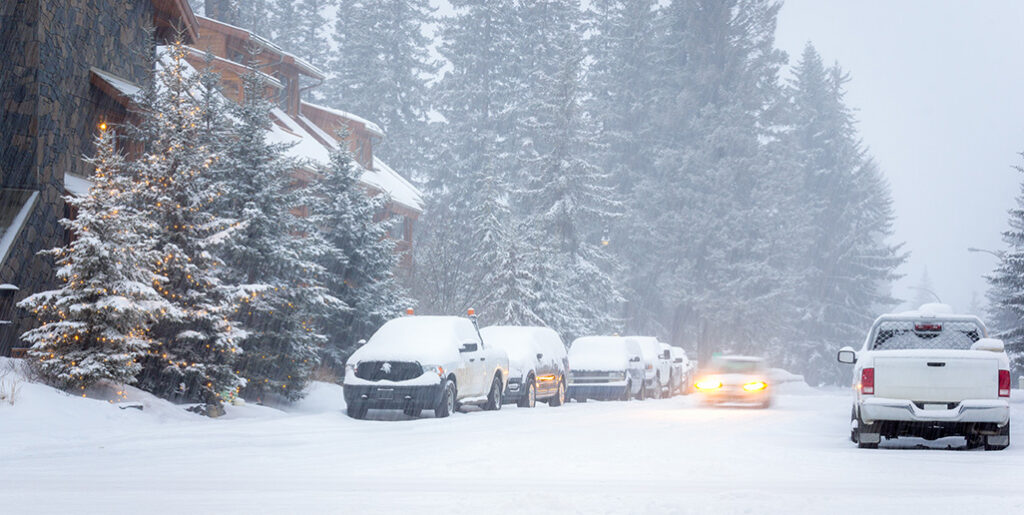
Climate Considerations
Alberta's terrain hosts some of the world's best winter activities, but it also produces some of the deepest and coldest winters in North America.
It’s normal for residents at the foot of the Rocky Mountains to experience warm wind Chinooks and sudden temperature drops. It's reasonable to turn down your thermostat when the outside temperature jumps 15 degrees. But heating your home back up 12 hours later will take longer with an electric furnace.
Managing Humidity Inside Your Home
When air is heated by a furnace, it lowers the relative humidity inside your home. Unfortunately, Alberta’s winters are dry enough in the first place!
Whether you’re using an electric or gas powered furnace, dry indoor air can be irritating.
Humidifiers are a great way to battle the dry Albertan climate, keeping you more comfortable and protecting your furniture and belongings. These can be installed directly into your heating system and increase humidity throughout your home.
See also: Do I Need a Humidifier In My Home
Go for a Gas Furnace, Alberta!
Going with a gas furnace is the right choice for homeowners in Alberta. Cold temperatures into the -30s and unpredictable temperature swings call for the power of natural gas heating.
Electric furnaces are easier and cheaper to install. But the higher equipment and installation costs of a gas furnace can be offset within a few years of use. Heating with gas is almost always more favourable to your pocketbook every month.
